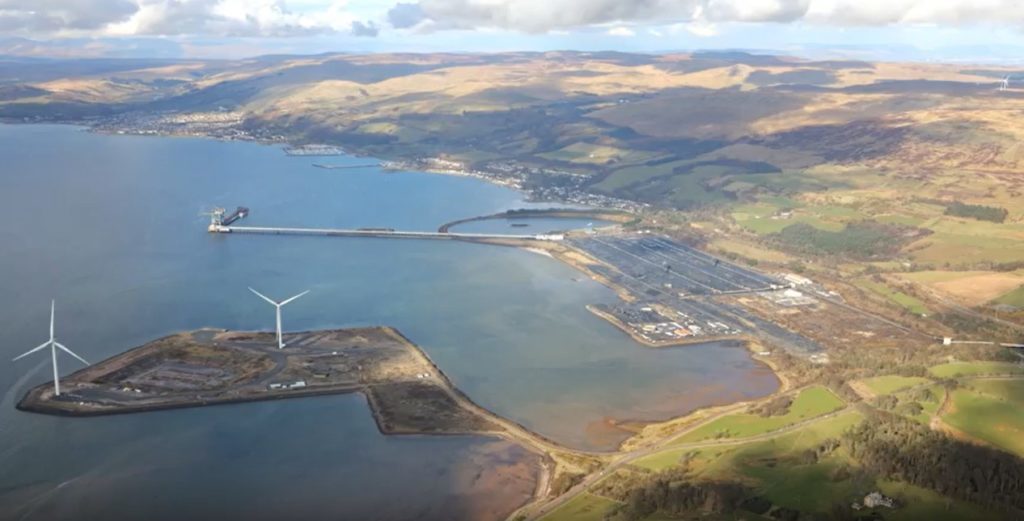
Industry body Decom North Sea (DNS) has said Hunterston’s Ayrshire location won’t be a “show stopper” for the site owner’s plans to scoop up oil and gas decommissioning work.
Tom Leeson, interim chief executive at DNS, said Hunterston’s distance from the North Sea was just an “extra challenge” Peel Ports would have built into its business case.
Mr Leeson said offering a complete and competitive package could offset the price of travelling the extra nautical miles to Ayrshire, instead of an east coast port.
He was speaking after Energy Voice today revealed CessCon Decom Ltd − the new Scottish-based division of CessCon Decom AS − would be the first company to offer decommissioning services at the site.
Site owner Peel Ports is transforming Hunterston into a “decom campus” capable of delivering the full range of dismantling, recycling and asset management services.
Its main jetty boasts water depths of 78ft, allowing it to challenge Norway.
Norwegian harbours tend to have ultra-deep-water facilities and can therefore accommodate heavy lift vessels more easily.
Hunterston PARC (Port and Resource Centre) also has one of Europe’s largest drydocks and more than 14million sq ft of space for operations.
Mr Leeson said the ultra-deep-water offering was “really interesting” and that it was “heartening” to see new players coming to the table.
He also said securing a contractor, in CessCon, to carry out decommissioning work would be an important selling point for Hunterston.
A recent report by energy consultancy Westwood Global said the presence of a tier one contractor is the most important factor for companies trying to decide where to have their assets dismantled.
Westwood said having Veolia and Peterson operating at Dales Voe would have been key to Repsol Sinopec Resources UK deciding to have the Buchan Alpha platform scrapped at Lerwick.
Mr Lesson said: “Industry is looking for package solutions and for organisations to work together.
“It’s not just about being a port − it’s about being a facility that can handle materials coming in and everything that goes with that.
“It’s very good to see that coming together in this case.”
He added: “Hunterston is further from North Sea assets than most other ports, so there will be extra transit costs.
“But that just means Hunterston has to be competitive in other ways – bringing in other benefits.
“We have seen in the past how lengthier transit times to Norway have not stopped assets going there because they offered the best package.”
Furthermore, Mr Leeson warned against getting too excited about the impact decommissioning contracts might have on employment at Hunterston.
He said: “Onshore decommissioning is a relatively small aspect of the whole decommissioning story, albeit an important one, but there will be no jobs bonanza from this.”
Mr Leeson said ports would not be able to rely solely on decommissioning work to sustain their businesses, though demand is expected to keep growing, according to a DNS study on supply chain capacity.
Recommended for you

